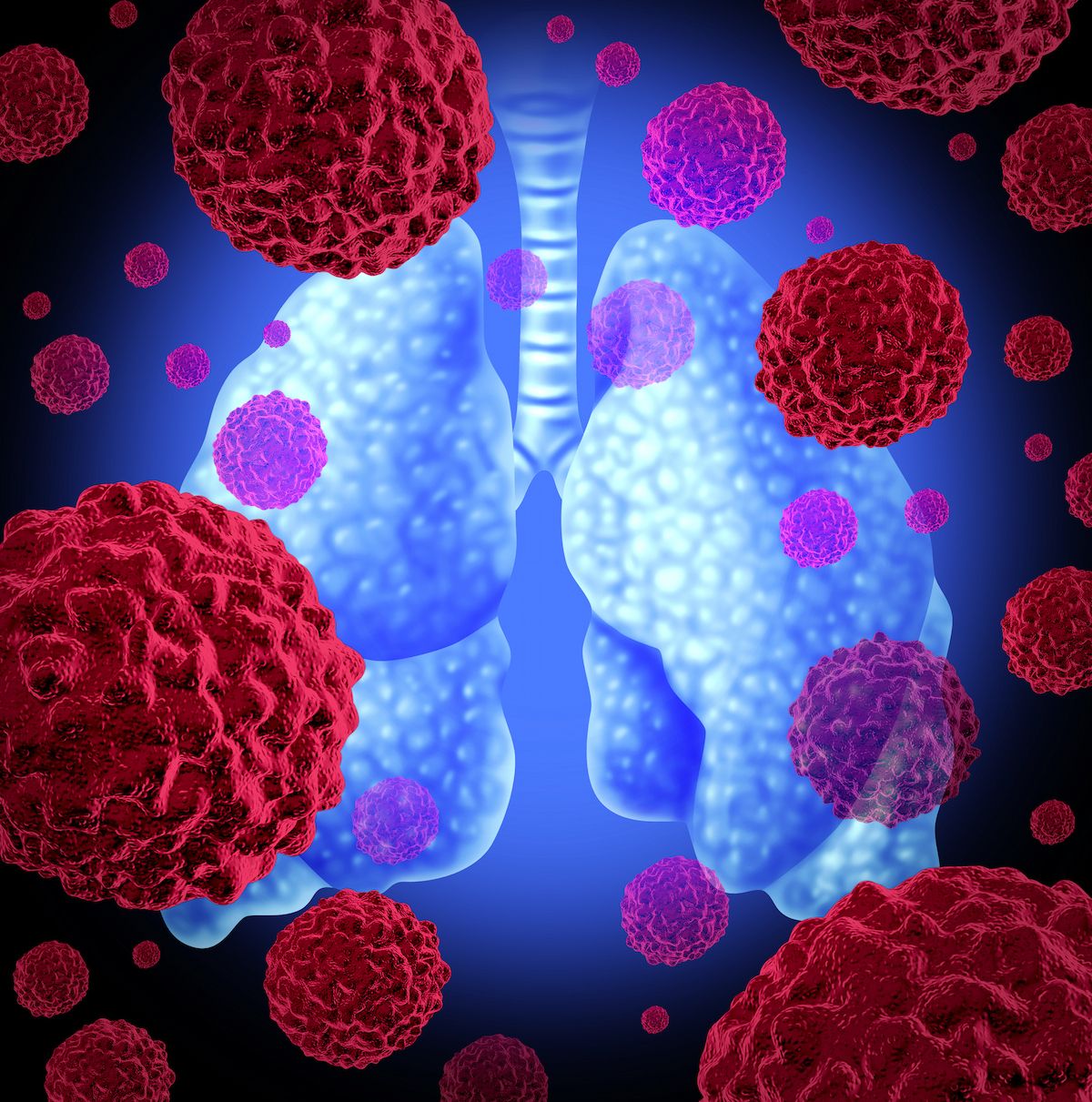Adjuvant Osimertinib Appears to Extend Overall Survival in EGFR+ NSCLC
New findings from the phase 3 ADAURA trial “provide powerful evidence” of osimertinib’s potential to extend the lives of patients with early-stage, EGFR-mutant non–small cell lung cancer, according to an expert from Yale Cancer Center.
Osimertinib (Tagrisso) as an adjuvant treatment for resected, early-stage, EGFR-mutated non–small cell lung cancer (NSCLC) has demonstrated an overall survival (OS) advantage over placebo, according to a press release on high-level findings from the phase 3 ADAURA trial (NCT02511106).1
"These new survival data for osimertinib reinforce the unprecedented ADAURA disease-free survival results and confirm its potential to extend patients’ lives in early-stage disease," according to an expert from Yale Cancer Center.

The new findings showed that osimertinib garnered a statistically significant and clinically meaningful OS benefit, the study’s key secondary end point, in the early adjuvant and late-stage metastatic settings . No new safety signals were reported and the toxicity profile remained consistent with the agent’s established profile. Investigators will report these data in greater detail at a future medical conference.
“These new survival data for osimertinib reinforce the unprecedented ADAURA disease-free survival results and confirm its potential to extend patients’ lives in early-stage disease,” principal investigator Roy S. Herbst, MD, PhD, the deputy director and chief of medical oncology at Yale Cancer Center and Smilow Cancer Hospital, said in the press release. “The ADAURA results provide powerful evidence that osimertinib offers the best possible care for patients with early-stage EGFR-mutated non–small cell lung cancer who historically faced high rates of recurrence and previously had no targeted options after surgery.”
Investigators of this global, double-blind trial administered therapy to 682 patients with stage IB, II, or IIIA NSCLC following resection and optional adjuvant chemotherapy. Patients were randomly assigned 1:1 to receive either oral osimertinib at a dose of 80 mg daily or matched placebo for up to 3 years or until recurrence.
The ADAURA trial had previously reported a disease-free survival (DFS) advantage for osimertinib over placebo.2 The 4-year DFS rates for patients with stage II to IIIA disease were 70% vs 29% in the osimertinib and placebo groups, respectively (HR 0.23; 95% CI, 0.18-0.30). The DFS rate was 73% in the overall population treated with osimertinib vs 38% among those treated with placebo (HR 0.27; 95% CI, 0.21-0.34).
Median DFS with osimertinib and placebo was 65.8 months vs 21.9 months, respectively. The osimertinib group also included a significantly higher number of patients who were alive and disease-free at 48 months (70%) vs the placebo group (29%).
“The ADAURA trial brought the first targeted medicine to patients with early-stage EGFR-mutated non–small cell lung cancer,” Susan Galbraith, executive vice president of Oncology Research and Development at AstraZeneca, said in the press release. “Today, these exciting [OS] results validate adjuvant [osimertinib] as the standard of care in this setting and reinforce the importance of early diagnosis and testing for EGFR mutations in lung cancer.”
Osimertinib was the subject of several other phase 3 clinical trials in earlier stages of lung cancer. This included the phase 3 NeoADAURA trial (NCT04351555) assess osimertinib with or without chemotherapy in the neoadjuvant resectable setting; the phase 3 ADAURA2 (NCT05120349) trial assessing adjuvant osimertinib in patients with stage IA2 to IA3 NSCLC following a complete resection; and the phase 3 LAURA trial (NCT03521154) assessing osimertinib after chemoradiotherapy in the stage III locally advanced unresectable NSCLC.
References
- Tagrisso demonstrated strong overall survival benefit in the ADAURA phase III trial for adjuvant treatment of patients with early-stage EGFR-mutated lung cancer. News Release. AstraZeneca. March 9, 2023. Accessed March 9, 2023. https://bit.ly/3YCeYh9
- Herbst RS, Wu YL, John T, et al. Adjuvant osimertinib for resected EGFR-mutated stage IB-IIIA non-small-cell lung cancer: updated results from the phase III randomized ADAURA trial. J Clin Oncol. Published online January 31, 2023. doi:10.1200/JCO.22.02186